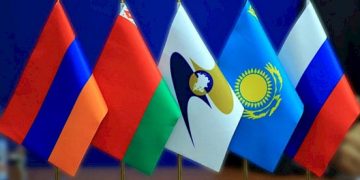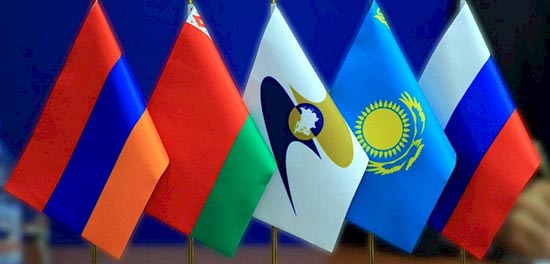Digitalization is an important trend not only in Kyrgyzstan, but also in international processes. Modern technology makes life much easier for business and political processes. As a result, time is saved, allowing various processes to be accelerated, which benefits ordinary people.
In Kyrgyzstan, digitalization has been actively integrated over the past few years. Many significant projects have been implemented, such as electronic document management. The important thing is that it minimizes corruption risks. In addition, a number of solutions have been implemented to make life easier for ordinary people. These are electronic queues, the ability to receive documents online or apply for certain papers.
Large organizations are also switching to digital technologies, but this process is longer, because it is necessary to take into consideration interests of all participants. The Eurasian Economic Union (EAEU) has developed a plan for the digitalization of various processes, which is already being gradually implemented.
For example, a new law related to the structure of customs documents will come into force in the EAEU on Oct. 1 this year. The board of the Eurasian Economic Commission (EEC) has approved new versions of the structures of customs documents, which contain comprehensive changes resulting from earlier decisions of the EEC board to amend the procedure for completing the goods declaration.
The new versions allow, in particular, to expand the possibilities of automated customs control of timber in accordance with the legislation of the Russian Federation, to specify information in electronic form in relation to previously imported identical goods to optimize the control of the customs value of goods, etc.
Automation will make the activity of customs services more transparent. It is worth understanding that this is not only a requirement of time, but also a demand from society and the business community. In particular, electronic declaration will be used more often in the territory of the Union. In addition, e-commerce is coming to the forefront.
In a presentation, held in late April, Director of the Department for Customs Legislation and Law Enforcement Practice of the EEC Sergei Vladimirov highlighted the main points, related to the current regulation of foreign electronic trade, comprehensive work on amendments to the EAEU Customs Code, implementation of the pilot project, which will allow to test the new technology of customs operations in electronic trade of goods.
“The Customs Code of the Union, like in many countries around the world, does not yet have separate rules for goods cross-border electronic commerce. Therefore, for an adequate and full-fledged customs regulation of cross-border electronic commerce issues it is necessary to form a new legal framework,” said Vladimirov.
“When carrying out such work, we are fully oriented on international standards, which are formed on the WCO platform, first of all on the Framework of Standards on Cross-Border E-Commerce,” he added.
The Union’s industrialists also recommended using digital technologies.
“Today there are great opportunities for industrial enterprises in terms of import substitution of industrial products, sub-sanctioned goods. The time when we were trying to connect industrialists through face-to-face meetings and business missions is passing, and now more and more communication tools are moving to digital platforms. The digital service Import Substitution Exchange is a necessary and effective tool for the development of cooperation in our Union,” said Nikolay Kushnarev, the Director of the EEC Industrial Policy Department.
According to experts of the industrial sector of the Commission, today it is important to ensure the interaction of national electronic trading platforms of the EAEU countries that specialize in the procurement of commercial organizations, state corporations, companies with state participation and governmental customers. It is planned that as a result of the ongoing work, the number of active suppliers of industrial goods and services from the EAEU states interested in selling their products will significantly increase, as well as the volume of mutual trade between the Union countries will significantly grow.
Digitalization will also affect cattle breeders. At the end of April, the EEC collegium approved the rules of implementation of the general process “Formation, maintenance and use of the database on pedigree animals and breeding achievements in the field of livestock breeding”.
“The document will provide an automated exchange in electronic form between the authorized bodies of the Eurasian Economic Union and the Commission information on pedigree animals and breeding achievements in the field of livestock breeding through the implementation of a common process using the integrated information system of the EAEU.
Automated exchange of information will improve the quality and provide additional assurance for the accuracy of the information, provided on pedigree animals, moved between the member states, to raise awareness of the breeds, types, lines and crosses of agricultural animals bred in the Union,” the EEC reported.
The rules establish requirements for the implementation of the general process No. 471, on the basis of which technological documents will be developed to regulate the formation, maintenance and use of two databases. One is a database on breeding animals, including information on their productivity, origin, breeding value, place of birth, presence of genetic diseases and other necessary data, which is essentially an electronic version of a breeding certificate. The other is a database of breeding achievements, i.e. breeds, types, lines and crosses of farm animals bred in member states of the Union, their productive qualities, originator breeding farms where they are bred, data on breeding achievements, developers, information on approbation.
“We believe that the implementation of the common process will increase trade in breeding products between the countries of the Union, the acquisition of breeding products directly, without intermediaries. Taking into account the importance and relevance of the digitalization process in the Union, this project will contribute to the aggregation of information on breeding animals and their use for analytical and selection work in the breeding industry,” Director of EEC Agricultural Policy Department Armen Harutyunyan noted.
- Latest
- Trending





